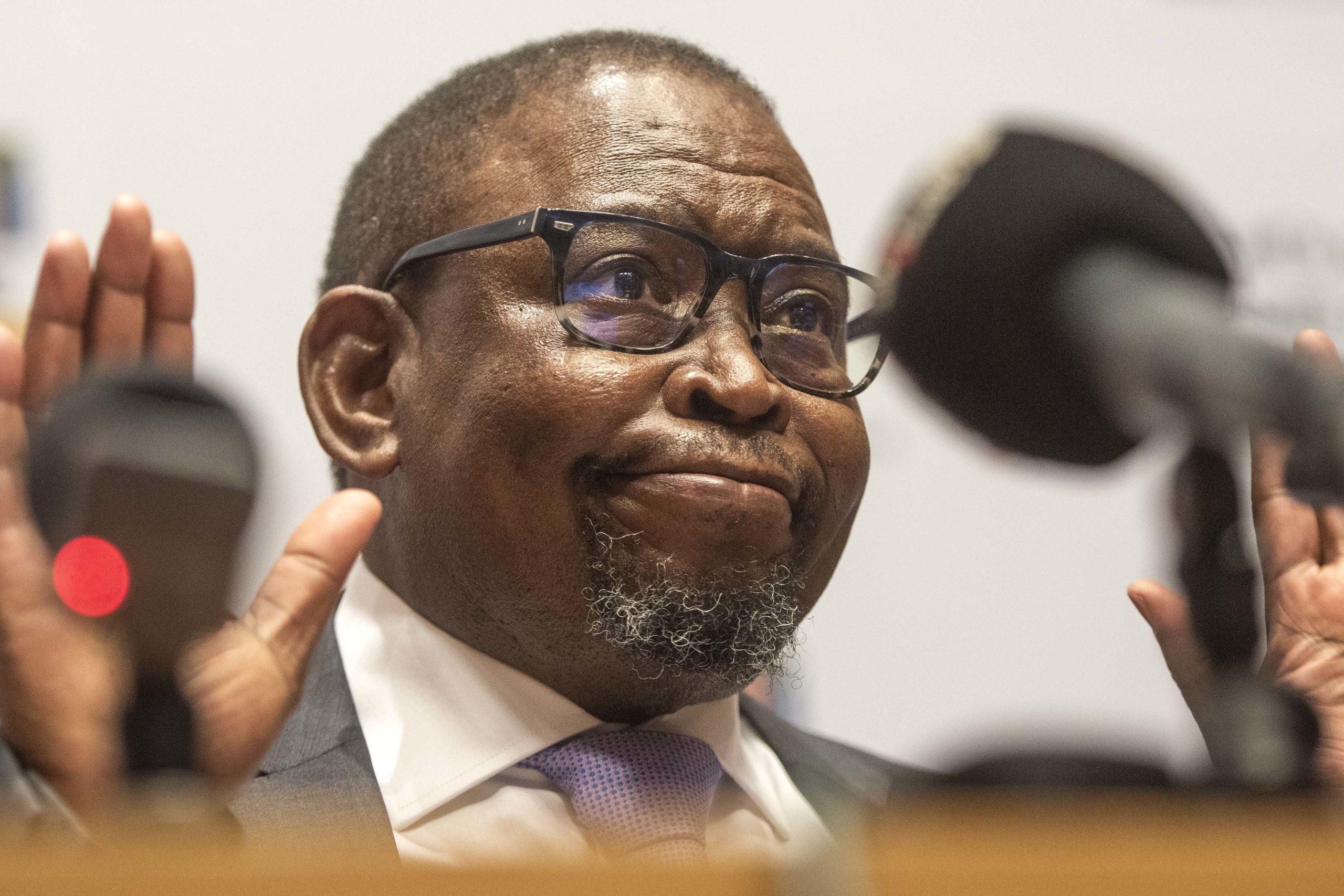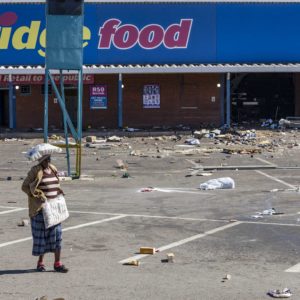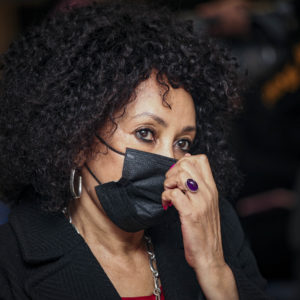Stark choice ahead for Enoch Godongwana
The finance minister’s maiden budget will have to tackle a generationally important question: How will the government widen South Africa’s social security net?
Author:
31 January 2022

Time is running out for the government to draw a line in the sand on the future of South Africa’s social security. With little more than a state of the nation address and national budget speech separating the country from the end of the Covid-19 social relief of distress grant at the end of March, Cyril Ramaphosa’s presidency and the National Treasury under Minister of Finance Enoch Godongwana have to decide what comes after the R350 monthly grant lapses.
In the wake of South Africa’s hard lockdowns, the grant offered a lifeline to many of the country’s most impoverished people. The full extent of its impact is difficult to gauge as budget cuts have hamstrung the ability of Statistics South Africa (Stats SA) to produce up-to-date estimates of poverty. But the most reliable estimates suggest the grant, which is now also available to eligible unemployed caregivers, spared about 2.5 million people from falling into the most desperate poverty.
The fact that South Africa still has this grant at all is largely owing to actions taken by impoverished people themselves. While momentum had been building among policymakers to further extend the grant, those elements of the national unrest in July 2021 that resembled food riots forced the government’s hand.
Related article:
Godongwana now has a number of policy options to consider to extend the social security net that spares impoverished people from the worst ravages of South Africa’s generationally high unemployment rate and a slowly recovering economy.
During Lula da Silva’s term as president, Brazil lifted an unprecedented number of people out of poverty, in large part because of Bolsa Família, a municipally administered programme of conditional cash transfers to impoverished families. Toward the end of last year, it appeared that a family poverty grant similar to the Bolsa Família was among the options that Godongwana and the treasury team were considering to replace the R350 grant.
While it appears that enthusiasm for the family poverty grant has since cooled, treasury director general Dondo Mogajane, who stressed the need to remain “muted” in the lead-up to the budget speech, would not be drawn on whether or not his department is considering implementing a trial version of it.
Replacement options
A team from the University of Cape Town’s Southern Africa Labour and Development Research Unit (Saldru) modelled which replacement of the social relief of distress grant would give the treasury the best bang for its buck. The family poverty grant, which by its nature would target South Africa’s most impoverished households through a means test, scored well on this metric. Once the severe limits of the South African state to implement such a grant were considered, however, that efficiency started to diminish, leading researchers on the Saldru team to label it “premature” late last year.
Much of this concerns the question of what a South African household actually looks like. Without the required national household register, the government departments that would be responsible for implementing the grant have no way of knowing. All evidence suggests that, whatever it is, a South African household is complex and easily changed. During the first two stages of South Africa’s hard Covid-19 lockdown alone, for instance, one in every six adults moved from the home they had lived in before, according to two economists from the University of the Witwatersrand.
Another reason the Saldru researchers are wary of the family poverty grant is what we do know about households. Many people are trapped by economic dependence into homes riven with often gendered violence. Part of the social relief of distress grants’ success story, according to Kate Philip, who leads the presidential employment stimulus success, has been the way it has circumvented these kinds of dependency pitfalls. “The social relief of the distress grant does not create dependence,” said Philip. “What it does is create independence by freeing people from a reliance on often toxic homes and neighbours.”
Related article:
Philip added that the grant has been “incredibly important in closing gaps in our social security net. And it will be important to defend that.” While Minister of Social Development Lindiwe Zulu was unavailable for comment, her department is pushing for such a defence by saying the grant should eventually be used as the foundation of a permanent basic income grant.
The Saldru modelling estimates that a basic income grant, which the business press appears only to be entertaining on condition of attendant and wholesale slashes to other social grants, would drastically reduce severe poverty in South Africa – a more than 80% reduction in the poverty gap of Stats SA’s food poverty line. A basic income grant, however, is likely the least efficient option currently available to Godongwana, which means that a considerable amount of any spending on such a grant would not benefit impoverished people directly.
With certain senior politicians and officials in the grips of deep fiscal anxiety and opposed to the extension of the social relief of distress grant, and reports emerging of warnings by the president’s economic advisers against a basic income grant, a permanent such grant is likely not imminent. Some sources close to the Presidency are cautiously confident, however, that the social relief of distress grant will at least be extended after its expiry in March. And, even if it is not made permanent in Godongwana’s upcoming budget, the longer it remains a reality in the lives of impoverished people, the more difficult it will likely be for the treasury to reverse it in the future.
Pressure on Godongwana will mount in the wake of Ramaphosa’s upcoming state of the nation address, in which he is expected to speak about both the social relief of distress and basic income grants.


